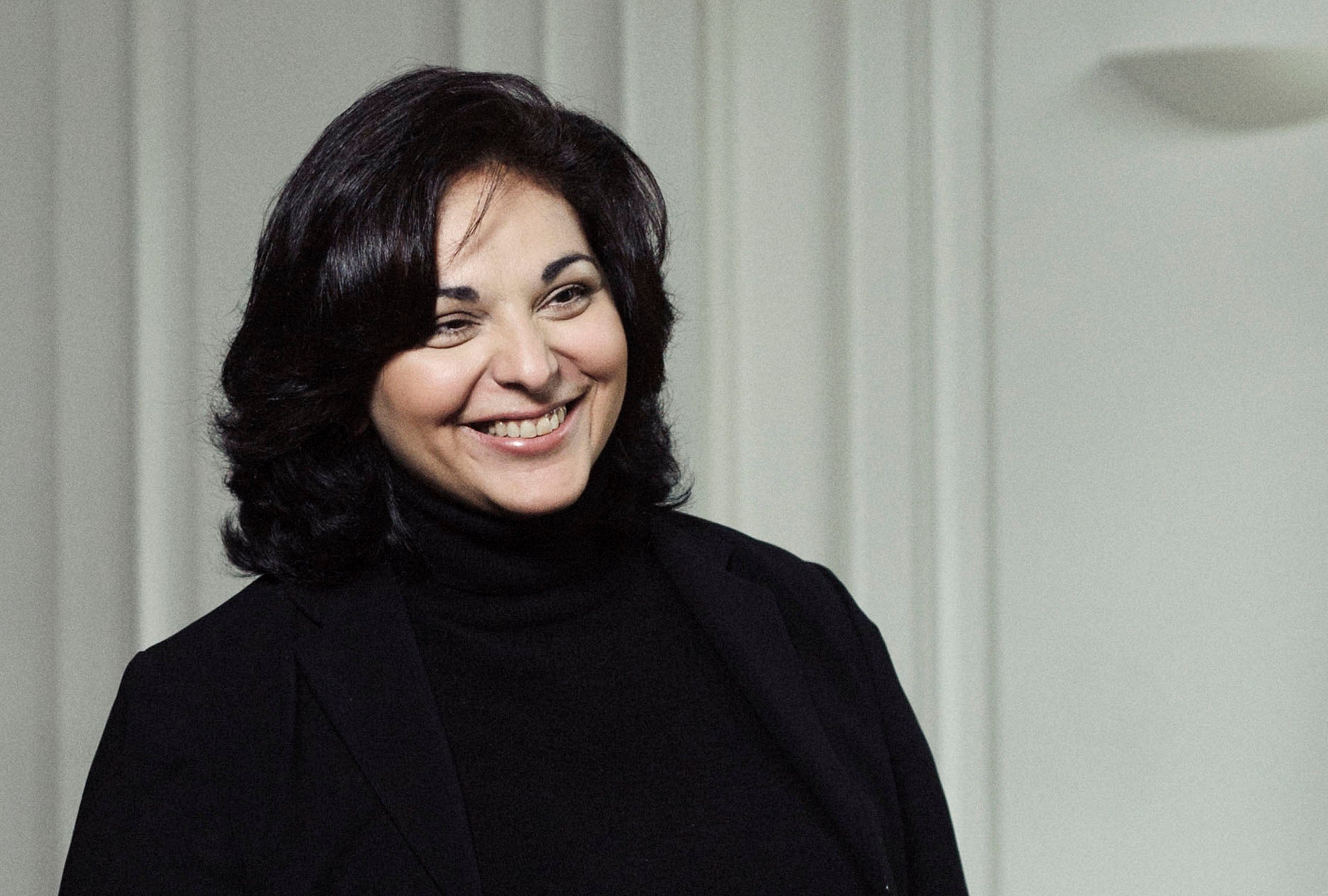Yas Banifatemi LL.M. ’97 was at home in Paris on July 18, 2014, when an email arrived revealing the outcome in an arbitration case that had consumed her career for much of the previous decade.
In three decisions spanning a total of 1,800 pages, a Tribunal sitting in The Hague under the administration of the Permanent Court of Arbitration awarded her clients $50 billion for the illegal expropriation of their investment in Yukos oil company by the Russian Federation.
The Yukos case, with its largest-ever arbitration award—which French Vanity Fair described as Vladimir Putin’s “most crushing defeat” in 15 years in power—was the culmination of a career in international arbitration, which took root at Harvard.
Banifatemi first came to Harvard Law School as a visiting researcher in 1993, while working on a Ph.D. in public international law back in France. (She was born in France, where her father earned a Ph.D. in nuclear physics, and she moved back there from Iran at age 12 following that country’s 1979 revolution.)
She returned to Harvard in 1996 for an LL.M. while writing her 500-page Ph.D. thesis, a feat which earned her the nickname “E.T.” among friends. Learning about the high-stakes cases and complex legal issues involved in international arbitration in Arthur von Mehren’s class prompted her to consider it as a career.
After graduating, she went to work for Shearman & Sterling in Paris and within four months was asked to help on a case brought by the Czech state bank CSOB against the Slovak Republic. It proved to be just the first of “a very long series of public international law cases,” fueled in part by a boom in investment treaty arbitration, she said.
The Yukos case began in October 2003 with the arrest and imprisonment of the company’s billionaire CEO, Mikhail Khodorkovsky. The Russian government subsequently brought enormous tax claims against the company and forced it into state control, a takeover shareholders claimed was politically motivated.
After Khodorkovsky’s arrest and what appeared to be, according to Banifatemi, an attempt by the Russian authorities to undercut Yukos’ management, she and her colleagues were approached by the majority shareholders of Yukos, then Russia’s largest oil company.
Dealing with the extremely complex issues the case raised involving international and Russian law occupied “60 to 150” percent of her time in the years that followed, Banifatemi said. As part of the memorable moments, she recalls having traveled to Finland, where Khodorkovsky’s terminally ill criminal lawyer provided testimony about “the inhuman and degrading treatment of every person even remotely related to Yukos by the Russian authorities.”
“The case was about the discriminatory treatment of Yukos and the expropriation of our clients, Yukos’ majority shareholders,” she said, “so these human rights aspects were very important to the understanding of the political nature of the case.”
In 2008, Banifatemi and her colleagues finally argued the tribunal’s jurisdiction in The Hague. Four more years would elapse before the final hearing on the merits in the fall of 2012, and it took 20 additional months before the tribunal issued its final awards in 2014.
“It was a great moment: finding out that we had prevailed and finding out that we had also prevailed on the costs of the arbitration,” Banifatemi said.
The award was “historic and groundbreaking” for more than the amount of money involved, said HLS Assistant Professor Mark Wu, who hosted Banifatemi and her colleague Emmanuel Gaillard when they spoke about the case at an HLS event earlier this year.
“In holding that the Russian Federation breached its obligations under the Energy Charter Treaty, the tribunal also did not hesitate to venture into a politically sensitive case involving a major power, thereby demonstrating the potential reach of international law,” Wu said.
Banifatemi was happy to see the Yukos case end, although her work on it hasn’t quite ended. Efforts to enforce the award continue in a number of countries.
She continues to divide her time between serving as an arbitrator, teaching and working on public arbitration law and arbitration cases involving countries from Egypt to Croatia.
She also has a book in the works and “dreams” of starting film and photography projects.
“My problem is that I can’t stay put—I need to be active,” she said.
